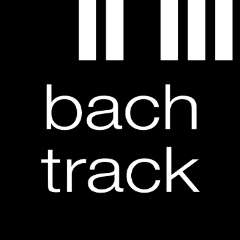Honorary degree ceremonies at British universities still bring out the full works. Good helpings of ritual, lashings of pomp, a parade of brightly-coloured academic gowns, a bit of kneeling, even a mace.
First there was a fanfare - Boulez's Initiale, to usher in the "Esquire Bedell," at the head of a procession of six other gowned dignitaries solemnly making their way onto the Dukes Hall stage. Then there was a welcome from RAM Principal Jonathan Freeman-Attwood. Then a citation read by John Suchet, enumerating Boulez's astonishing range of achievements, working the themes of discovery and exploration. And then the conferment of the degree itself, with Boulez kneeling, bowing deep to receive the red and white hood and to pass it over his cap.
Boulez's first words were to express his thanks. Now 85, he still talks with a natural dignity, precision, and spellbinding clarity. And more than a little emotion. During his life, he said, London had come to play an increasingly prominent role in his life. He knew of the BBC while still a teenager in the small town of Montbrison, as something from another world, as the beacon of freedom in the darkest moments of the Nazi occupation. He then expressed his particular debt of gratitude to Sir William Glock. Glock had invited Boulez to write provocative articles about music for the BBC, and later, had been the driving force in getting him to to conduct the broadcaster's Symphony Orchestra. And finally he thanked the Academy, but was also addressing an appreciative and sizeable London audience for having been so welcoming to him. He marked personal significance to him of this passing moment thus: "I am more a part of this city and of this institution than before"
And then music. Derive I from 1984, and Memoriale - a tribute to flautist Lawrence Bearegard from 1985, with Pablo Heres Casado directing the student forces with panache and authority, and flautist Liset Pennings rising eminently to the challenge of a fiendish part.
Next came a distinct change of register. The seven straight-backed chairs of the opening ceremony and a dozen or which had been put out for the musicians, were put away. In their place, just two armchairs were put centre stage. Pierre-Laurent Aimard, whom Boulez had hand-picked in the 1970's to be a founder member of the Ensemble Intercontemporain, stepped up for an informal interview with Boulez.
He started with an elegant paradox. Boulez, Aimard ventured, must have brought far more knowledge and understanding of twentieth century music to more people than anyone else. And yet, he has no wish to be thought of as a pedagogue. Boulez returned the thought deftly, his first ideas about how one should communicate echoing Montaigne, about first being honest with oneself, true to one's own being: "If you have a message to give to other people, tell yourself that message first." It's a remark which speaks volumes. Boulez has that way of never seeming unprepared, of seeing everything he does in logical sequence. He talks of getting to know music prior to performance, in depth, from scores: "When music is performed, I ask: how does what I hear compare with what I had imagined?" And when he listed the qualities he listens for, the first was "proportion."
And you would never want to miss a Boulez digression. He talked very briefly of the essence of Stravinsky's Les Noces as being a series of interlocking and precisely calculated tempo relationships. The sort of throwaway nugget which can completely transform one's understanding of music.
Aimard encouraged Boulez to talk about some of the key periods in his life, notably the formation of the Ensemble Intercontemporain and IRCAM in the seventies. Boulez remembered that at one point he had refused point blank to be involved in the project at all, unless the Culture Ministry would guarantee salaries for the players. That made the orchestral and venue managers in the audience smile. He also told an engaging account of the bluffers whom he had made sure were kept at a distance from IRCAM. " In electronic music there are a lot of amateurs," he reminisced. "They jump on it because they don't know what to do with their lives."
Boulez illuminates music when he performs it, and it was just as fascinating to hear him talk. Here are three interesting links: Forthcoming dates featuring Boulez as composer http://www.bachtrack.com/find-events/what/composer=751-Boulez--Pierre--b--1925- and as conductor http://www.bachtrack.com/find-a-concert/Who/performer=633-Boulez--Pierre A video about his Lucene conducting masterclass http://www.truveo.com/Pierre-Boulez-masterclass/id/2819528521
Sebastian Scotney 2nd July 2010
Photo credit: Mark Whitehouse, Royal Academy of Music


